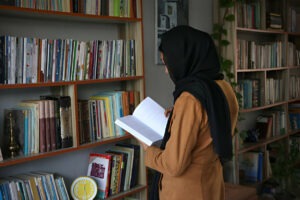KABUL (SW) – Migration from Afghanistan surged in 2014 with the end of the NATO-led combat mission and departure of thousands of foreign troops.
Reports compiled by Salam Watandar indicate most young people and their families vacated their homes in Afghanistan in a bid to live in a European country for a better life away from war and injustice. Many such Afghan citizens gave away their belongings and savings to reach Europe, but only few arrived and many others were drowned in the sea or lost their lives to other hardships of the dangerous journey.
The issue prompted the Afghan government to step in and sign memoranda of understanding with host countries and issue a joint statement. The declaration, signed between Afghanistan and the European Union in 2016, covered some key points.
One of the points is that European countries should not return even a single Afghan asylum seeker. Old age, orphans, single women and children are some of the factors that bind the host country not to send asylum seekers to the country.
According to the officials at the Ministry of Refugees and Returnees, as per the joint statement by Afghanistan and the European Union, up to 40 Afghan asylum seekers were saved from being deported back to Afghanistan since 2016 and remained in Germany and France.
Sayed Abdul Basit Ansari, media adviser at the Ministry of Refugees and Repatriatio, said in this regard that these people now live normally in the host countries and deserve work and education.
Most Afghan citizens have flocked to European countries through irregular migration, and some asylum seekers have faced many difficulties.
The state of Afghan refugees is not defined anywhere in the world, and most of them are faced with hardships. The Afghan asylum seekers see their lives tied to never-ending hard work, misery, low incomes and constant agony.
In recent years, as the state of security worsened and targeted killings have increased, another way of Afghan migrants has emerged. Observers believe most of the Afghan migrants have been heading to Pakistan, Iran and Turkey to travel onward to Europe.
Afghan migrants living in Turkey have long been complaining about the poor living conditions, and constant wait for the borders to open so that they can travel onward.
Reza Akbari, an Afghan migrant, has been living with his family in Turkey for three years now. He said the working conditions of migrants in this country are difficult and far from being fair. According to him, the low-wage migrants are made to work hard.
Reza Akbari said: “The minimum income in Istanbul is only around three thousand liras, but the Afghans I know are willing to work for about 12 hours and even 14 hours for a salary of less than 14,000 lira because they have no other choice and cannot be employed elsewhere”.
Mahbooba Rezaei is another Afghan refugee who left Afghanistan in 2017 due to insecurity and in search for a safer life. She currently lives in a city in Turkey. Rezaei said she has not been interviewed for her case since she applied for asylum with the United Nations, and that the spread of the coronavirus has made life more difficult for the migrants.
Mahbooba added that although her refugee status case is considered as a sensitive case by the UN, but nothing has been done for her. “I am here, even though I am a single woman and single and homeless women are among the priorities of the UN and a sensitive section of society,” she said. “Unfortunately, there has been no progress in my case.”
She sighed that most migrants are caught between fear and hope, which has led to mental illness among them. According to her, most asylum seekers who receive a negative response take the path of irregular migration, which often leads to their death.
This Afghan asylum seeker added that UN assistance is not universal and only covers specific and limited individuals.
ENDS






